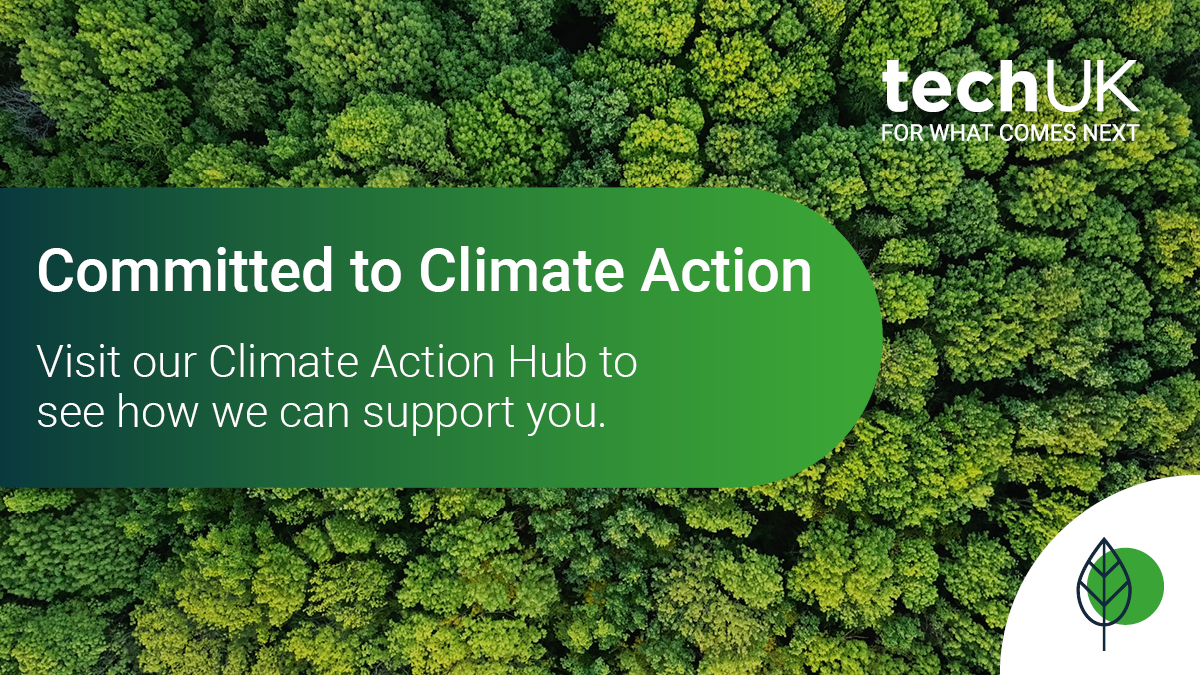How the cloud can help close the gap between intention and execution for sustainable business practices (Guest Blog from Google Cloud)
With pressure rising to make impactful, lasting change to help fight climate change, businesses can’t afford to overlook sustainability initiatives within their operations. According to Google Cloud’s recently commissioned research which examines the state of play across the Environmental, Social, and Governance (ESG) landscape, ESG initiatives are a top organisational priority for businesses, alongside adjusting business models and evolving. There’s no doubt that leaders are increasingly prioritising sustainability initiatives in their businesses, but turning these good intentions into something impactful has, so far, proven to be more difficult than imagined.
Our research has confirmed a disconnect between these intentions and what companies are actually doing to enact change. Findings have revealed that 80% of executives give their organisation an above average rating for their environmental sustainability effort, yet only 15% of these businesses have a programme in place to actively measure their sustainability impact.
To close this gap and turn good intentions into actions that have tangible, measurable results, collaboration and technological innovation will be key – to support, drive and measure sustainability efforts.
Sunshine through the cloud
The survey has found that executives are increasingly viewing technology and sustainability as two of the top areas for investment. Three quarters of business leaders (75%) view using technology as working in tandem with solving sustainability issues, with technological innovation being viewed as critical for future sustainability efforts.
Public cloud technology - services and solutions developed by Cloud Service Providers (CSPs) and available over the public internet - is leading the way in helping optimise business processes by streamlining operations and providing tools to measure and report the impact of sustainable practices.
Due to the priority given to sustainability initiatives by CSPs, combined with the flexibility and insights available through cloud, migrating to cloud computing is a concrete step towards many sustainability objectives. In fact, an IDC study conducted last year found that continued cloud adoption could prevent the emission of over 1 billion metric tons of CO2 by 2024 through its greater efficiency of aggregated compute resources.
Using AI tools to monitor your progress
The survey has also revealed that access to data and measuring tools were key barriers to businesses in actualising their sustainability plans. Cloud providers can support their customers through their sustainability-focused tool offerings that are designed to help monitor and report on the progress of a businesses’ environmental initiatives.
Today, data analytics tools can deliver insights into real-time data centres and regional energy consumption so energy companies and enterprises alike can make greener IT decisions, removing any barriers based on a lack of education or visibility.
AI and Machine Learning tools can be plugged into business operations to monitor things like where materials are being extracted in the supply chain, and the carbon impact of their products and services. Other location-based technologies have been designed to provide further transparency, by using geospatial to forecast a business’s contribution to deforestation for example, to empower companies to cut carbon emissions.
Building a sustainable future is a team effort, and having AI-powered insights provides businesses with a way to show their employees, boards and customers their progress against climate change, providing transparency and encouraging positive change.
Using insights to enact change
While 65% of UK executives admit to not knowing how to achieve their sustainability goals or quantify their efforts, many companies are still in the early stages of their sustainability journey which is why collaboration is key to fill the gaps.
Shifting to public cloud technology may be an obvious first step, but achieving ambitious ESG goals often requires a lot more than sustainable IT decisions. Businesses must now consider the entirety of their business and value chains, and determine what transformations are required to drive a step change in sustainability performance.
Greening the supply chain, for example, is one area where technology can make a big difference. Tools that address supply chain challenges specifically provide customers with end-to-end visibility across their supply networks, giving them power and insight to make necessary changes to ensure operations are efficient and sustainable.
Armed with actionable insights, organisations can gain a holistic view of their supply chains in relation to the broader environment, leveraging data to optimise operations and solve sustainability-related problems.
Closing the gap
Despite business’ best intentions, they alone cannot solve the climate crisis. Turning impressive sustainability goals into action with impactful results requires collaboration across your company, with businesses working together, and effective climate policy in place., Business leaders need to be armed with the right sustainability-focused tools to measure and monitor their environmental impact. With such data, businesses have the insights to drive effective change and close the gap between commitment and action.
techUK - Committed to Climate Action
techUK provides opportunities for members to showcase climate tech innovation. Members are invited to speak at events, contribute to reports, write blogs, run webinars, and take part in podcasts that support their environmental action. We strive to amplify the sector’s commitment to sustainability. To discuss how we can support you, please visit our Climate Action Hub and click ‘contact us’.








